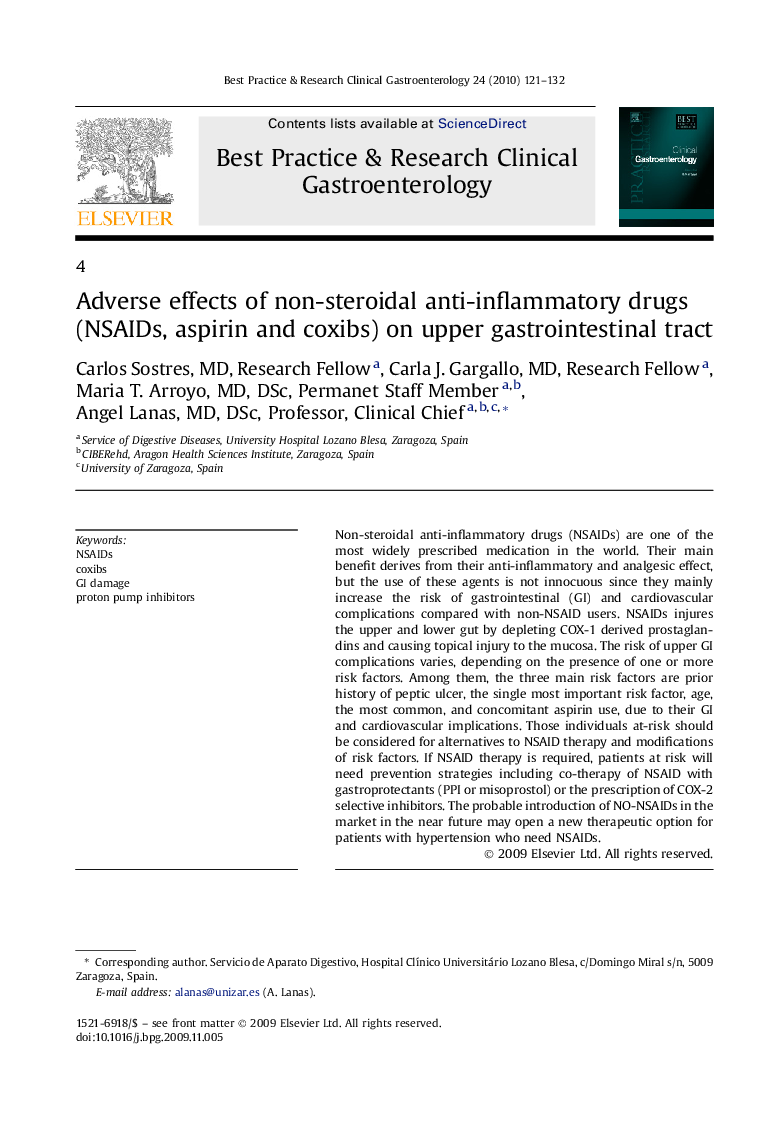| Article ID | Journal | Published Year | Pages | File Type |
|---|---|---|---|---|
| 3254728 | Best Practice & Research Clinical Gastroenterology | 2010 | 12 Pages |
Non-steroidal anti-inflammatory drugs (NSAIDs) are one of the most widely prescribed medication in the world. Their main benefit derives from their anti-inflammatory and analgesic effect, but the use of these agents is not innocuous since they mainly increase the risk of gastrointestinal (GI) and cardiovascular complications compared with non-NSAID users. NSAIDs injures the upper and lower gut by depleting COX-1 derived prostaglandins and causing topical injury to the mucosa. The risk of upper GI complications varies, depending on the presence of one or more risk factors. Among them, the three main risk factors are prior history of peptic ulcer, the single most important risk factor, age, the most common, and concomitant aspirin use, due to their GI and cardiovascular implications. Those individuals at-risk should be considered for alternatives to NSAID therapy and modifications of risk factors. If NSAID therapy is required, patients at risk will need prevention strategies including co-therapy of NSAID with gastroprotectants (PPI or misoprostol) or the prescription of COX-2 selective inhibitors. The probable introduction of NO-NSAIDs in the market in the near future may open a new therapeutic option for patients with hypertension who need NSAIDs.
